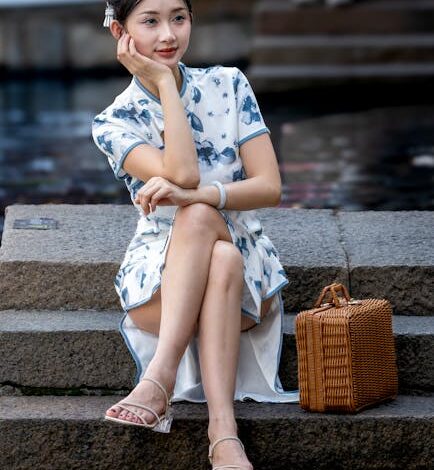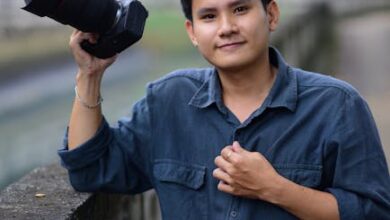The Echoes of Collectivism: Where ‘We’ Trumps ‘I’

Have you ever felt like you’re living two different lives? One shaped by the expectations of those you love most, and another, quieter one, defined purely by your own burgeoning desires? For many, this internal duality is a familiar companion, but for Arab women, it often takes on a profound, culturally resonant meaning.
Recently, a young Egyptian woman named Hend Sayshi captivated audiences on TikTok, articulating this very experience. She spoke of navigating two versions of herself: the one molded by family dynamics and collective priorities, and another she discovered through the solitude and independence of living and traveling alone. Her candid reflection hit a nerve, resonating with hundreds of Arab women who instantly recognized their own journeys in her words. It wasn’t just Hend’s story; it was a broader reality, a silent acknowledgment of the intricate dance between individuality and the powerful pull of family and community in Arab societies.
The Echoes of Collectivism: Where ‘We’ Trumps ‘I’
This dynamic isn’t new; it’s deeply rooted in the foundational differences between collectivist and individualist cultures, a topic scholars have explored for decades. In collectivist contexts, the emphasis is placed firmly on the group – the family, the community, the tribe. Your identity isn’t a standalone entity but intricately woven into the fabric of these relationships. Developing a sense of self often means learning to balance personal aspirations with duty, obligation, and the unspoken expectations of those around you.
Consider the contrast: a 2003 study in the journal *Intercultural Education* highlighted how Egypt scored significantly higher on collectivism compared to Germany, a society where self-expression and individual independence are cornerstones. This isn’t to say one is better than the other, but rather to illuminate the vastly different landscapes in which identity is forged. In many Arab homes, decisions—from career paths to marriage—are often communal affairs, weighed against the family’s honor, reputation, and collective well-being. For a young woman, this can mean a constant, subtle calibration, ensuring her choices align not just with her heart, but with the broader narrative of her kin.
Navigating the Labyrinth of Expectations
The beauty of collectivism lies in its robust support systems, the unwavering sense of belonging, and the intergenerational bonds that define it. Families are often extended, relationships are deep, and there’s a safety net built on mutual responsibility. However, this strength can also present a unique challenge for personal growth, particularly for women who are often seen as the guardians of family honor and tradition. The path to self-discovery, which might be a solo expedition in individualistic cultures, becomes a negotiation, a conversation, sometimes even a quiet rebellion, within collectivist frameworks.
The version of self shaped by family expectations is often one of deference, grace, and adherence to societal norms. It’s a self that prioritizes harmony, avoids conflict, and understands the weight of collective reputation. And for a long time, this was often the *only* self many women knew, or felt they could safely express. But as the world shrinks and access to diverse ideas grows, the “other self”—the one defined by choice rather than obligation—becomes harder to ignore.
Meeting the Self Beyond the Mirror: Finding Agency
Hend Sayshi’s experience of traveling and living alone speaks to a profound shift. Stepping out of familiar environments, away from the watchful eyes and loving, well-intentioned pressures of family, often provides the necessary space for this “other self” to emerge. It’s in these moments of independence that one can truly listen to their own voice, unfiltered by external narratives. Suddenly, choices become genuinely personal: what to eat, where to go, how to spend one’s time, and, crucially, who to be.
This isn’t about rejecting one’s roots or abandoning family values. Far from it. Instead, it’s about integration. It’s about understanding that both versions of self can coexist, perhaps even enrich each other. The challenge lies in harmonizing the deep-seated respect for family and community with the equally powerful human need for personal autonomy and self-expression. For many Arab women, this journey involves intricate compromises, courageous conversations, and sometimes, simply finding quiet ways to cultivate their individual desires without disrupting the collective harmony they value.
The Evolving Landscape of Identity
The rise of digital platforms like TikTok has offered a new, powerful avenue for this process. It creates spaces where women can share their experiences, find solidarity, and realize they are not alone in their internal struggles. These platforms become virtual communities where shared stories build collective strength, slowly but surely paving the way for more open dialogue about personal choice within cultural frameworks. Literature, too, has long been a mirror for this tension. Egyptian writers, for example, have explored this divide between self and society for decades, revealing the enduring nature of this quest for balance.
The journey is rarely linear. It’s a constant dance between tradition and modernity, between duty and desire. It’s about honoring the profound gifts of a collectivist culture—the unwavering support, the deep sense of belonging—while also claiming the inherent right to one’s own path, voice, and dreams. For Arab women, navigating this complex terrain is not just a personal endeavor; it’s a testament to resilience, a quiet revolution, and a vibrant redefinition of what it means to be a woman rooted in rich heritage yet soaring toward individual horizons.
A Path of Conscious Integration
Ultimately, the story of Arab women balancing self and family isn’t about choosing one over the other. It’s about the conscious, often challenging, work of integrating both. It’s about understanding that a strong, self-aware individual can contribute even more meaningfully to their family and community. The “collective” doesn’t have to be a cage; it can be a foundation from which personal growth takes flight. As more women like Hend Sayshi bravely share their stories, they illuminate a path not just for themselves, but for an entire generation seeking to reconcile deep-rooted traditions with the universal human desire for self-determination. It’s a journey of profound introspection, cultural negotiation, and ultimately, a richer, more authentic existence.





